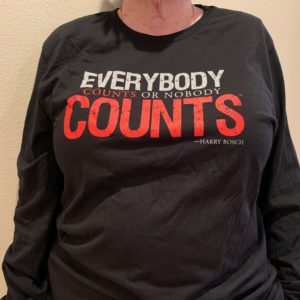THE GREAT RIGHT-WING PUBLISHING DIVIDE WIDENS
If you’re still keeping up with the publishing hubbub, here’s another story on the formation of a new publishing company being started by a couple of conservative industry executives, “Louise Burke, a former top publisher at Simon & Schuster, and Kate Hartson, the former editorial director at Hachette Book Group’s Center Street imprint.”
Why Everyone You Know Suddenly Has Main Character Syndrome
“Main Character Syndrome” exists only in the overactive — and healthily deluded — minds of the internet’s many self-identified protagonists. But while Main Character Syndrome — a situation wherein people think of themselves as being the top-billed star of the feature film that is their regular lives — might sound like the kind of distorted sense of reality digitally averse boomers warn everyone under the age of 30 about, Main Character Syndrome is also an important coping technique — and it’s how we’ve collectively chosen to process this past year.
Michelle Santiago Cortés examines the social-media memes that have developed around our tendency to think of our life story as a movie. “Main character memes cut across platforms to unveil the shakiness at the core of our identities, the kind of uncertainty that only a hero’s journey can cure.”
Pain on the page: is this the end of the hysterical, ill woman of literature?
“Women over the centuries have not always expressed their own pain in art and literature. More often, they have had it expressed for them by men,” writes Arifa Akbar. But now, she continues, “That has changed and a tide of contemporary writers is offering correctives to the fantasies, often in first-person memoir form and with a note of urgency.”
Akbar looks at “a paradox at the heart of the old myth of sick femininity”:
illness is seen to be built into biology – emanating from the womb, ovaries and menstrual blood itself – but also, perversely, suspected of being “all in the head”. The figure of the hair-pulling hysteric is born out of this paradoxical distrust and is strewn across the literary and medical canons.
Intimate Strangers: Reading Airport Essays During a Pandemic
Annelise Jolley reports that during the pandemic “I’ve been missing airports and airplanes. I don’t just miss them for the adventure they imply; I also miss the casual proximity to strangers these in-between spaces invite.”
To help her “articulate what, exactly, I miss about being crammed up next to the passenger in seat 18B,” she turned to some of her favorite airport essays.
What drew me into this piece is the reference to “favorite airport essays.” I can’t say that I have any of those.
Do you?
TV’s hero cops are under scrutiny. But ‘Bosch’ knew the system was broken all along
In this interview author Michael Connelly and actor Titus Welliver discuss the Amazon series Bosch, based on Connelly’s series of novels. The final season of the TV series is now streaming.
Titus Welliver on playing detective Harry Bosch: “He’s got a flawless moral compass. His credo is, ‘Everybody counts or nobody counts.’ Can you get more centered than that?”
I’m proud to wear my Harry Bosch shirt.
Living Memory
“Black archivists, activists, and artists are fighting for justice and ethical remembrance — and reimagining the archive itself.”
Megan Pillow fears what will get lost in the documentation of all that happened during 2020:
What I didn’t find in these early pandemic archives was Breonna Taylor’s story. And her story—not just of her death, but of her life as an essential healthcare worker and a Black woman, part of a demographic that has been devastated by systemic racism across healthcare, politics, science, and law enforcement—is central to our country’s pandemic narrative. What many pandemic archive projects are missing is something Black archivists across the country and members of the Breonna Taylor justice movement already know. The COVID-19 pandemic and the racial justice movement are not separate occurrences: protest is being enacted and lived through the crisis.
Elin Hilderbrand to retire from writing beach reads in 2024
“Elin Hilderbrand, known as the queen of the beach read,” has decided to stop writing her signature novels in 2024 because “I feel myself coming to my natural end of my material.”
For her next literary life, she wants to become a book influencer. ““You will not find anybody who reads more critically than a writer. . . . I really feel like book influencing should be done by writers. And so I should be that person.”
© 2021 by Mary Daniels Brown


